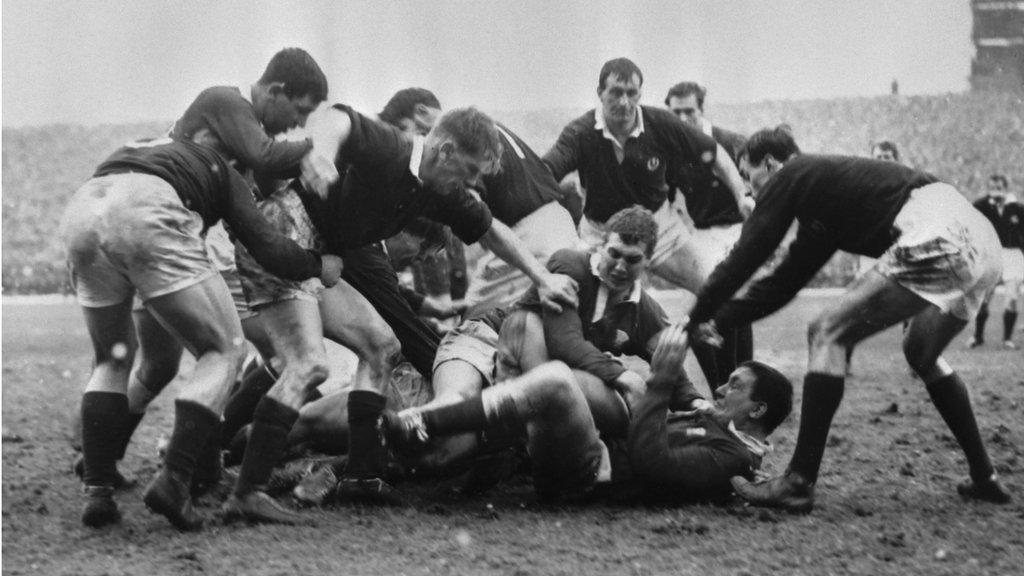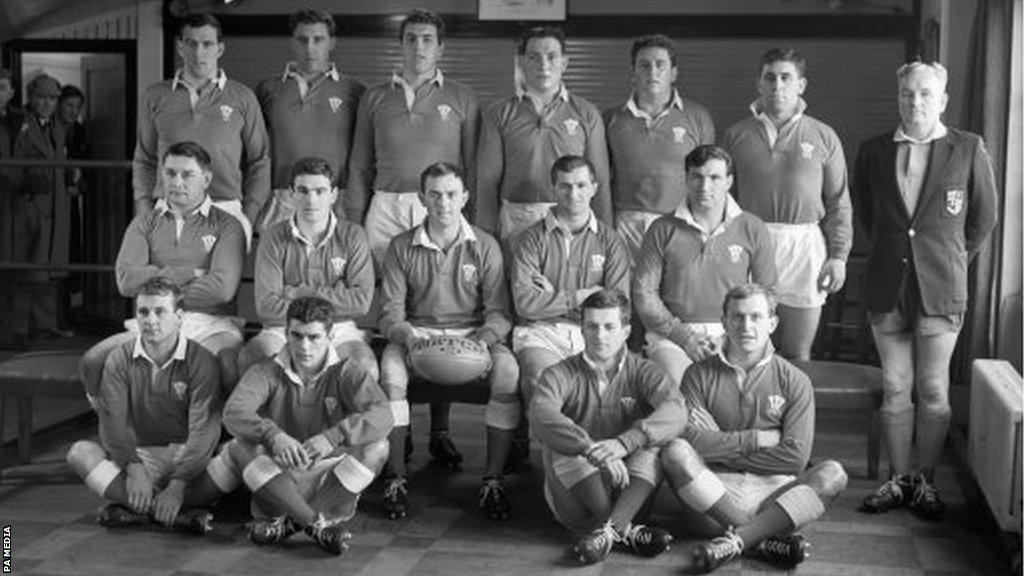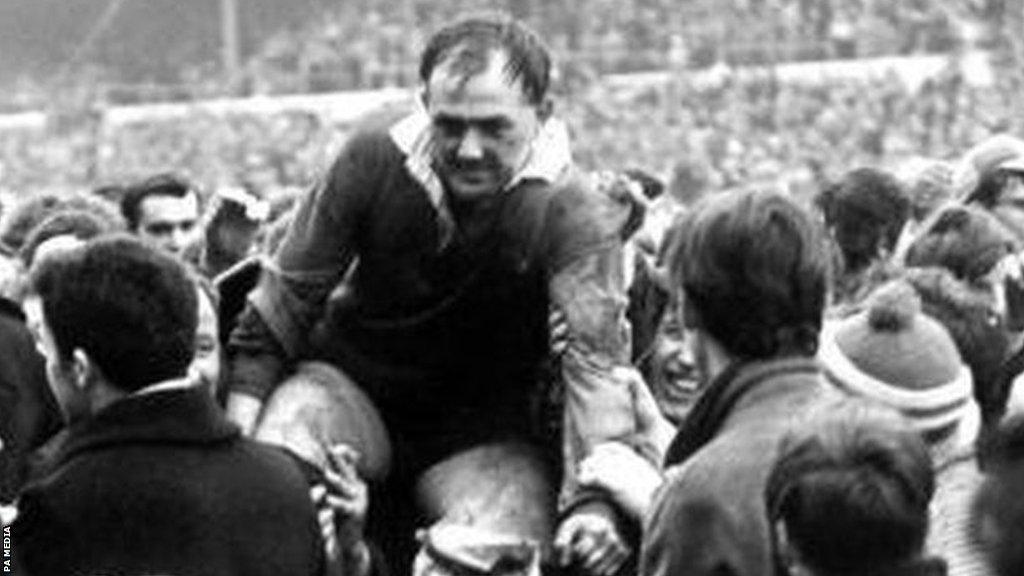Six Nations 2025: Scotland-Wales game that almost 'killed' test rugby
- Published

Scotland and Wales contested 111 lineouts in the match
When Finn Russell and Gareth Anscombe commence an inevitable kicking duel during Saturday's game, spectators would do well to remember how far the game has come.
It is more than 60 years since a game that holds a firm place in rugby infamy.
The Murrayfield slugfest in 1963 is regarded as one of the dreariest matches ever played - and it changed the way the game was played forever.
And one man was responsible for the 'spectacle' - Clive Rowlands.
The Big Freeze of 1963 was among the harshest winters on record.
Sporting fixtures across the country were cancelled, however the newly installed undersoil heating at Murrayfield and an army of volunteers with snow shovels ensured the February game between Scotland and Wales went ahead.
However, many of the 60,000 who braved the bitter cold may have wished they had not.
Wales won 6-0. Although at the time such a scoreline was commonplace, the aspect that had purists crying into their beer were the tactics employed that day by the visitors - tactics that yielded an astonishing 111 line-outs. The average for international rugby today is rarely more than 20.
As Denis Busher of the Daily Herald wrote at the time: "International rugby is in its death throes as a spectator sport. Wales won carrying 'modern' power rugby to its logical conclusion."
Wales' recent head coach Warren Gatland was familiar with the critique, but 62 years ago it was the wily Rowlands who opted for brawn over brains.
The Wales scrum-half and captain spotted an opportunity with some bedtime reading the night before the match.
According to the matchday programme, the rival sets of forwards were evenly matched in terms of size. Rowlands, however, suspected differently.
After checking with a few of his forwards, who admitted to being a few pounds heavier than the official records, and given the conditions, Rowlands decided Wales would try to beat Scotland at their own game up front.

Victory over Scotland was Wales' only win of the 1963 Five Nations
At a time when there was no penalty for kicking the ball straight into touch, even outside the 25-yard line - now the 22m line - Rowlands set about hoofing the ball up field time, and time... and time again.
The power of the Wales pack and the unrelenting barrage of kicks pinned Scotland back for all but the final moments of a game that also included more than 35 scrums.
The Wales backs may have boasted speed and guile, but were reduced to spectators. It is said their supremely gifted outside-half David Watkins received just two passes from Rowlands all game.
Wales centre Brian Davies, who was dropped for the next match, said: "I touched the ball twice and could hardly feel my hands in the cold."
Wales won at Murrayfield for the first time in 10 years, thanks to a penalty from full-back Grahame Hodgson and a stunning drop goal from Rowlands - the only international points he scored.

Rowlands went on to win the Five Nations as both captain and coach of Wales
Rowlands was carried from the pitch on the shoulders of travelling fans and was unrepentant about his tactics.
"It was not attractive and I felt sorry for the backs," he said after the match. "But we were all out to win and we played to win. The pack did a great job.
"I was never at any time tempted to open the game up and let my backs make the running. That's what Scotland were praying we'd do."
'No victory for rugby'
Supporters may have been jubilant, but there were serious misgivings over where the game was heading.
In the Daily Express, Pat Marshall concluded: "This was power-rugby, brutally bludgeoned up and down the touchlines by two brutish packs with kicking scrum-halves yapping at their heels.
"It has no part in the pattern of British rugby, where quickness of wit and fleetness of foot still counts for more than brawn supported by an educated boot. Rowlands won a tactical victory, but it was no victory for rugby."
Others followed suit and steadily the authorities were moved to adopt the 'Australian dispensation' and ban direct kicking to touch from outside the 25-yard line some years later.
The irony is that the team that benefitted the most from the law changes was the great Wales team of the early 1970s - coached of course by Rowlands.
A previous version of this story appeared in 2023.

SIX NATIONS SIN BIN: Crouch, bind and set yourself up for the Six Nations 2023!
SCRUM V PODCAST: The latest rugby news and views
